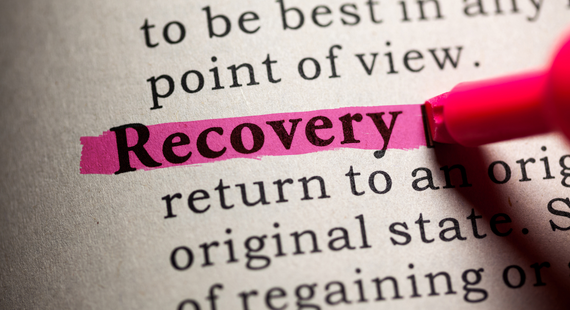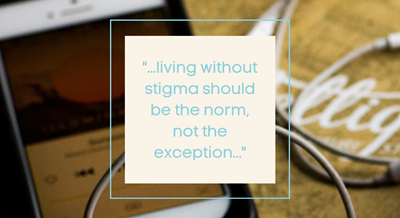
Gary Kiernan shares his lived experience of being a caring professional who then is accessing mental health services and care for themselves.
Gary is a social worker who, after becoming unwell and getting a diagnosis of depression, has spent time in hospital and learned a lot about himself, his work, and his mental health needs. He traces his journey of mental health recovery in the hope of shedding light on mental healthcare from a dual perspective: that of a service user and a caring professional.
Please note that, in places, this article touches on topics that some readers might find difficult.
This is an abridged version of an article which first appeared in the Journal of Psychiatric and Mental Health Nursing.
You can find the full article here.
Introduction
If you pass any construction site, unless you have the appropriate safety equipment as well as your “safe pass”, you are not allowed entry. The trades men and women are constantly reminded of how they must protect themselves and others by wearing a hard hat and using the tools of their trade safely. In professions like social work and different forms of nursing and medical professions, when it comes to health and safety in the use of our tools - our mind and body - this is where the paths separate. There is no mandatory “safe pass” or safety equipment.
Stage one: Seeking help
After a long struggle, I had finally decided that I needed to ring my General Practitioner (GP) after putting it off for many reasons. Firstly, I was embarrassed and felt it was a sign of weakness. I was father to three beautiful children and a senior manager in a child and family agency, admitting to my doctor that my head was not right. I said the words to him that I was “not ok”, that I was “down”, and dreaded him asking me the question that I knew in my head I did not want to answer - “are you safe?”. So, looking to the ground and feeling ashamed, I said “I am not safe”, that I had thoughts in my head that I was not understanding, and that these thoughts were saying to me the most horrendous things that I could never understand any person listening to, never mind carrying out.
The night before had been a long one. I had my dinner on my lap and I remember looking out the window, watching the first glimpse of winter dark nights starting to come in, and then, like a tidal wave, I said to myself, “I cannot do this anymore”.
It is hard to understand what you feel and even harder to explain it; I could not understand why I felt this way. I found myself feeling alone and isolated and yet, from the outside, I had everything going for me.
Stage two: The doctors to the acute hospital
My GP struck me as a man who knew his job very well, and I had the feeling that he was listening to me with an inquisitive mind, trying to make sure he heard the right words to do the right assessment.
I had felt this way before for short periods, maybe lasting at most a week, and I could put them down to fall-outs I had in work and short periods of loneliness - this was different. This time the feelings were not going away and I had a low mood that was going lower and not due to any circumstance. I was also tired from not sleeping and I did not feel that I needed sleep. My GP wanted to know was there a specific reason for how I was feeling. I may have hinted at him that it might be something to do with my children leaving home and my recent separation. However, I knew that there were also other reasons that I was feeling this way, mainly to do with my past childhood and history of sexual abuse, but I was not yet ready to go there.
I arrived at the nearest accident and emergency department and was surprised to be met by a doctor who said she was expecting me. As the doors began closing behind me, I started to feel that my power and independence were slowly being taken away from me. I was brought to a corridor that had a closed door at each end and was met by a nurse who began opening the small overnight bag that I had with me. I was asked to empty my pockets and take off my belt and take the laces out of my shoes. This was all too much for me and I could feel myself panicking. Giving in and trusting was all I could do.
Although the memories of this time are unclear, I know that my friends and family were shocked by what was happening and, I am sure, finding it difficult to understand. I was not much help to them, as I too did not understand what was happening.
After a week or so, I was transferred to a psychiatric hospital in Dublin. At this hospital, I do remember being spoken to by an empathic young doctor and my relief at feeling that she understood better than I did why I needed to be there and, thankfully, moved me swiftly in to what I later known as the acute care ward. The feeling once again of being powerless came over me as my bags where searched and labelled. I was put in a bed and I pulled the duvet over my head and slept.
Stage three: Mental health services
Being in the acute care ward at the time did not mean anything to me. I did not care where I was, only that I wanted to sleep and be cared for. In these early days, I lay in my bed going in and out of sleep. Although my body was resting, my head was running a marathon. On one level, I was taking everything in, but also did not feel able to react to anything.
As the time went on in acute care, I was moved to another three-bed area that was more relaxed, and there was a couple of side rooms where you could watch TV or play a board game. I was then moved out of acute care after a couple of weeks on to a main ward. This was to become my home for the next two and a half months. My mobility was slowly increasing to being able to walk around the hospital and gardens, which helped me start to think about where I was and what was happening to me. After a week on the ward, I was given my own room.
Being in hospital for the first time with mental health issues was something that I felt hard to adjust to. Doctors spoke in terms of weeks rather than days when it came to looking at changes in my health. I was assigned a very good consultant and he was supported by two junior doctors and a multidisciplinary team.
At this point in time, I would describe myself as being very grumpy and agitated. I was looking at everything and everybody in a distrustful way. I felt I needed to be on guard all the time and felt vulnerable. I got annoyed over the simplest of things, which was not like me. I also did not like my body space being invaded. One of the nurses was a male nurse and was genuinely caring. One Saturday morning, I felt frightened when I was sitting on the sofa and I felt him come close to me. I froze and panicked at the same time. I felt trapped, not knowing why. He did nothing; he just sat close to me. But, in my mind, it felt like he had invaded me and I did not like it. This was for me the first inkling of why I might be here: my own history of childhood sexual abuse, something that I was confronted with every day in my work and yet had not addressed my own life.
The recovery was about to begin.
Stage four: Road to recovery
I was lucky to have a very good consultant who approached his work with a determined mind, but also gave space to listen and change his mind. His approach to medication was a cautious one. This meant I started on the lower doses and worked up if necessary rather than the other way around. The medication started to have some practical effects, such as helping reduce the night terrors. I also felt that the dark hole I was in was starting to lift and, every now and then, I felt myself lighten. My humour started to return to normal. I was not as paranoid as I felt before, and I started to open my eyes and mind more to see what was happening to me.
Role of creativity
The hospital offered a variety of activities. It has long been shown that art-based practices show promise as a beneficial solution for mental health services, because they are in line with a holistic recovery framework. My favourite, by far, was pottery. I took to it and enjoyed every hour making, moulding, rubbing down, painting and showing it off. I never saw myself as artistic but discovered I am. One day I went in to the art room and looked at the paintings on the wall and felt I wanted to put something on paper. I felt that I needed to physically do something with my hands to express a feeling I had in my stomach. The therapist in the room gave me some paints and a piece of A4 paper. I began by drawing circles, then there were three circles, then the three circles became eyes. Looking back at me was my eyes and my third eye, which for me was my soul, my feeling, my physical insight in to my black hole. The usefulness of the creative class in this instance provided me with the external environment to facilitate internal recovery. The therapist recommended that I consider framing it, which she did, and subsequently it was hung on the corridor of the hospital for a short time.
I also got a lot from the fun activities like quizzes, bingo and, one of my favourites, salsa dancing. This was great fun and it felt like you could let your body go to the rhythm of the music. Since the leaders of these activities where in the hospital seven days a week, I built a great bond with them during my time as inpatient.
Making friends with stigma
I am tempted to say that I only have depression two years because my first hospital admission for depression was two years ago. However, if I am truthful to myself, I would say I have had depression for over 20 years. I now wonder why I took this attitude to my illness. Was it a lack of understanding of the illness or was it lack of acceptance that I have what was often referred to as the “black dog”? Maybe it was a bit of both, as I am in my fifties and wonder how I could only recently know that I get depressed and sometimes I need help managing it.
What is interesting for me now to admit is that I did not accept it because I was ashamed of having depression. If I am ashamed of having depression, then I am ashamed to speak about it. And if I do not speak about it, then how can I expect those around me to understand it?
What helped me in my recovery was an understanding that I need to make friends with my depression.
Like a friendship, it takes time to get to know how it responds to situations, both good and bad. Also like friendship, depression is with me for life. Only by making friends with it, do I feel comfortable talking about it. The first step in building the friendship is to remove the stigma I attach to my own illness.
I did not want to see myself as having depression, partly due to the work I was in. Everyone has mental health needs and taking care of your mental health is essential for us all. When we work in the caring profession, it is more pertinent to be mindful of our mental health, since we tend to identify most with the caring role, often at the cost our own health. However, being confronted with the psychic pain of others can often be a trigger for unresolved issues in our own histories. It is essential, therefore, that we maintain good mental health and not wait till we reach crisis point or mental exhaustion.
Depression is often viewed as something that you have control over, that somehow you choose your mental illness or let it happen. By making friends with it, however, we can hope that others around us will better understand the affects it has on us and help lift the stigma of depression.
Treatment
My treatment is both taking medication and talk therapy. Talk therapy is an exercise like running or walking that we all need to do to keep mentally well. It is not only for those who have a mental health illness; it is also a preventable measure to keep good mental health wellness. It is my “safe pass” that needs consistent attending to, in order to protect myself and my relationships with those around me.
“So what do you work at?”. I remember being asked this early on in my treatment and recall being reluctant to answer it, as I had begun to disclose my own early experiences of sexual abuse. My reluctance was muffled in my head but went something like, “so you get abused as a child; you are fairly messed up about it; and then you get a job working with other children who have been abused and people who abuse them”. This made me feel somewhat of a masochist, bringing myself back to these painful memories.
Now, some years on in my treatment, I have unravelled this and come to some understanding of my choice of work. I remember when I applied to university, I was invited to a number of group and individual interviews as part of my application for the Bachelor of Social Work. This was a recognition that training as a social worker was more than just being academically bright. Rather, it demanded a set of life skills that you develop from your home place and from life experience. Knowing who you are in the child protection field is a necessity. Although this may not be clear in the early days, the ongoing work of child protection calls us to become more reflective and, at times, question humanity. It is important therefore that we consider our own histories and both conscious and unconscious motivations for coming to work in the field.
Conclusion
There was a time when I felt foolish choosing a job that would trigger memories of a very painful time of my life. Now, I understand why I did go in to the field of child protection. I can now feel ok saying what I work at because I can see how this shapes me as a person and the importance of bringing that person to my work.
This leads me on to asking myself, “so where is my hard hat?”. What health and safety briefs do I need to carry out to make sure I use my set of tools in a safe and healthy way? It starts with me updating the “safe pass” that allows me to go in to my work and do what keeps me safe and mentally well. But, also, I feel that this is something that society and employers must take on and engage with. I have managed social work teams and many projects within social work. I know I seldom, if ever, spoke about the effect my work had on me to a work colleague.
In thinking back and knowing now what I know about how work impacts on us, I see differently the strains and pressures that I experienced when my family was young. It also helps me see, in a different light, the needs of my wife and children at the time and how I found it hard at times to give the love and support that I know I wanted to give. The struggle for me was that, during my career, I spent the day listening, talking, assessing, problem-solving, planning, and this took a toll on me. By the time I came home, I had used up all my resources to do my job. Yet, these are the same resources that you need to be a good and loving father and husband.
What was of utmost importance to my life was acknowledging my struggle and receiving the help I desperately needed.
Writing this account of recovery highlights the question we must all ask ourselves in the care professions - how do we mind ourselves? When we are tasked with the care of others, it is all too easy to forget about the person doing the caring until we reach the point of burnout. Instead, we should ensure that we actively seek out preventative measures to ensure that we are addressing our own psychosocial needs. It has taken me considerable time to become aware of myself, my work and minding my mental health.
--
The views and opinions expressed here are the author’s own.
--
If you are affected by any of the issues raised in this piece, or if you are in crisis and need urgent help, please reach out: you can find a range of supports, services and emergency contacts here.





